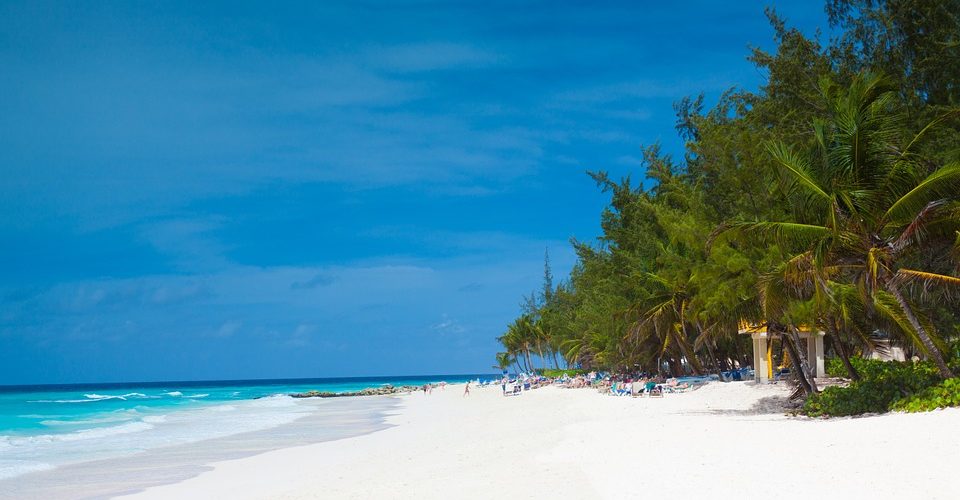When it comes to tourism there are many conflicting ideas as to how it can be conducted in such a way that it remains viable, and thus sustainable, for years to come. Definitions of sustainable tourism are often conflated with eco-tourism, leading to more confusion about the two topics. Therefore, before going too much further into this article I think it necessary to give the definition of sustainable tourism that will be used for the remainder of the article. Before outright defining it, remember, sustainability isn’t just about the environment (though very important), but also about the culture and society in which processes are engrained. One of the best definitions of this sustainable tourism comes from the United Nations World Tourism Organization (UNWTO), which defines sustainable tourism as “Tourism that takes full account of its current and future economic, social and environmental impacts, addressing the needs of visitors, the industry, the environment and host communities”1. If I may add anything to this as someone from a tourist-based economy (Barbados), I think it is also very important to add in a cultural aspect as well, though maybe this was encompassed under the “social” impacts the UNWTO mention.
Now that we can agree on what sustainable tourism is, how can this process be turned into a development platform? That is to say – how can tourist-based economies, like Barbados, or Thailand (there is a great interview coming up soon on this), use the broad aspects of sustainable tourism as a platform to spur on their development, thus growing the country’s economy in a highly sustainable way? In order to understand this, the next segment of the article is based on a scientific paper entitled “Tourism and Sustainable Development: Exploring the Theoretical Divide”2.
Sustainable tourism has been defined, now what in the world is sustainable development? To understand this, both of these terms, sustainability, as well as development need to be understood. Development is a loose term used to define the ways in which countries progress through different stages, moving from developing, to developed nations. The main development theory we follow is modernisation, which in a nutshell, theorises that consumption on a mass scale in places like cities will provide capital to the surrounding towns as the wealth ‘trickles down’ through the economy. This is a theory that much of tourism is based upon and the use of resorts can be a great example, as it is expected that the capital they earn will be shared around the country as workers earn money and tourists spend money on local products. Using this, tourism is essentially treated like an export – in the sense that we are bringing in foreign exchange for a product, which in this case is the destination and its amenities. This is a lovely theory, but has its issues, especially when corruption comes into play.
The most common approach to sustainability with respect to tourism development is the holistic approach, which accepts that tourism should be integrated into national and local development strategies, however the focus of sustainable tourism development is usually inwards, or product-centred. This is because sustainable tourism strategies almost always have a very narrow focus, targeting local, small scale projects, rather than targeting unsustainable aspects of tourism at a broader scale. It has been suggested that the biggest challenge of sustainable tourism will be to provide it to a mass market. Furthermore, tourism is often implemented in such a way that countries become over-dependent on it, and even when developed in a sustainable planning framework, tourism is often allowed to become the sole provider of economic activity in tourist-based economies. This in itself is not sustainable as in order to be truly sustainable, a country must be able to diversify its revenue streams. The paper concludes with one main recommendation for the development of sustainable tourism; the adoption of a new social paradigm relevant to sustainable living. This new paradigm of living will have to be largely spurred on by education, as tourists will have to choose to seek out sustainable forms of tourism or be prepared to adopt behaviours more appropriate to the needs of the country they enter.
*As someone who has grown up in a country whose economy is almost solely reliant on the tourist sector, I have a few of my own insights into the matter. Barbados, my home, is a highly visited tourist country. As such, you might expect that our economy is booming due to all of the foreign exchange and capital coming into the country. The fact of the matter is, according to the Financial Times, in 2018 Barbados was ranked at the fourth highest debt-to-GDP ratio in the world, with this being at 175%3. For a country that is as in demand as Barbados is, if tourism were being used as a proper development platform and being done well, this should never be the case. For a country that earns as much as Barbados does through tourism, it is apparent that sustainable development is not occurring. *
Of course, scientific papers have their place and are a great basis for writing articles, however real-world experience in the current year will help understand the strides that are being taken to create tourism more sustainable as well as use it as a development platform. In order to do this, I reached out to Jeffery Smith, the Vice President of Sustainability at Six Senses Hotels Resorts Spas. Six Senses have an intent focus on ensuring sustainability in every aspect possible across all of their locations and have various environmental initiatives to ensure guests as well as the communities they are based in learn and connect more with the natural world while also boosting local economies and preserving culture. The interview can be read here:
During my research I have come across many pieces arguing that tourism may never be sustainable with respect to distribution of wealth, as the income it brings is often not shared equally; how can this be addressed?
We (Six Senses) do try to address this, one of our aims is that all of our locations where we have our resorts or hotels have policies directly for this. Local hiring policy – we try to hire local, aim for 100% which in some locations we’re almost there, in other locations it’s really hard because for some reason people aren’t interested in tourism or they don’t have the skills – but we do try. In most situations if it’s a lack of skill then we will have programs for training, and we invest in local education programs for the community with the intention of over the long term building up that skill level so we can hire people. Local sourcing is important too and we have policies to prefer local sourcing of goods and services. So if you think about all of the supplies that go into running a resort there’s a lot, Six Senses go through a couple hundred eggs a day so even just looking at eggs, if we’re using local farmers, especially if they are small scale backyard farmers that’s pretty good business for them. Not everything can be sourced locally especially if you want certain kinds of vegetables that can’t be grown locally, but we do try to source locally as much as we can. That also goes towards services too, there’s not just the people who are directly hired by the resorts, there are secondary services and third parties – drivers who pick people up from the airport, people doing local tours, sending people out on boats – all of those local partners are worked with.
In your opinion, what must be changed about tourism for it to become truly sustainable?
The number one thing in all of the sustainable tourism webinars and in-person meetings that I’ve participated in, it seems as though the elephant in the room that people are not talking about but we’re all aware of is air travel itself. For tourism to truly be sustainable we’ve got to decouple flights and travel from fossil fuels, it’s got to be carbon 0 travel somehow to really be sustainable. No one wants to touch this issue because we all fly. Maybe the solution is solar planes, maybe blimps?
As a follow up, what aspects of tourism make it a success with respect to sustainability?
It provides meaningful jobs to people in some locations where otherwise there isn’t a lot of industry, specifically a lot of the focus in my company is resorts. Resorts tend to be in remote locations where there isn’t a lot of industry so the resort might be the biggest job opportunity in that island or region. I think it’s also good because it opens up the facilitation of cross-cultural exchange as one of the biggest aspects of tourism that is naturally helping sustainability because it is helping open people’s eyes. People from privilege may be seeing poverty, maybe giving access to people from these remote locations – access to international travelers, people, ways of thinking and direct job training. For example, we’re teaching people English and then hiring and teaching them basic entry level job skills but that also can be a stepping stone to international careers in tourism. And we do have people in our company who I know well that are from not typical western economies who have made careers out of working in tourism and they’ve been able to travel the world from it, and they’ve left their island and worked in other place so it gives access which is important on the cultural and social side. On the environmental side of sustainability, I think it gives access to people who would otherwise be in cities, allowing them to experience wildlife, to experience ecosystems that might be at risk thus allowing them to experience them and therefore value them. It gives value to ecosystems that otherwise might end up being testing ground for new fossil fuel exploration or mineral exploration or much more damaging industries. There’s habitat protection value built into tourism without even having to try to do habitat protection, because for tourists you want it to look pristine. Once you’ve experienced the environment it’s really hard not to care, how can you go away from that experience and think that could be destroyed. It can have a profound impact on people, and there’s power in that.
How can sustainable tourism be used as a development platform? What initiatives should countries with economies based in tourism be undertaking to bring about development spurred by the use of sustainable tourism?
As an example, we have a management contract with the hotel owner that we’ve added into all of our management contracts as a provision which acts as a funding mechanism for local development. So we call it the sustainability fund and it is 0.5% of all total hotel revenue, which doesn’t sound very big but when you multiply that by all the revenue coming into a resort it’s significant and that money is set aside and is earmarked to be spent at the local level. It’s not a corporate sustainability fund – it doesn’t get pooled to the corporate office it stays at each hotel unit level and it’s to be spent at the local level on projects with direct outcomes with local communities and environment. That’s the real only restriction we put on it, it needs to stay there and can’t go to the capital city – it needs to be relevant to that location and needs to have clear objectives to have positive impacts for the local community or environment. So that would be spent on the local school down the road, equipment in local hospitals, funding local educational programming – as mentioned earlier we provide free training for local communities. It also goes to wildlife conservation research, or habitat protection, we’re reforesting one island, regrowing coral in a reef in another, turtle hatching research and conservation, it depends on that location and what is relevant there. I think that’s an important tool, and really, it’s a policy – so that’s a corporate policy but it seems to be working pretty well and we’ve done some good stuff with that funding mechanism. Back to the question of what should countries be doing? Using this as an example I suggest countries do the same – might not be at the national level, maybe should be at the provincial or a bit lower than national level, but to actually tax the tourism businesses especially the big ones, international ones like ours and then use that tax revenue, and do what we do – keep it local, spend it directly in that local community so you can see the benefits. That way those visitors can see the benefits, so when we have guests come to our hotel we’ll introduce them – do you want to meet the turtle researcher whose research you’re funding – so thanks for visiting and you are funding them and you can go talk to them. Or would you like to take a look at the equipment which you’ve funded for the local hospital. So that way there’s that direct connection which I think is more sustainable to do it that way because when money gets pooled to capital city and then spent on other projects it is sometimes goes into strange places, and can be very disconnected from the actual traveler themselves which means that they don’t get that value out of it. They don’t have that full experience out of tourism that they knew they could by visiting. I recommend taxing tourism revenue and spending it directly in the locations where the tourists visit and what’s really smart about that is that tourists use things like local infrastructure – roads, bridges, waste management, clean drinking water – tourists need that so if you tax them and spend it on that it’s just smart business. What it comes back to is destination management which is really an industry of PR and marketing, every country has destination management people working for them, any tourism economy has it and they’re marketing that destination so they’re not really managing it to the pure definition of the word they’re actually marketing – my recommendation for governments is to actually manage the destination so yes continue marketing but also track things like infrastructure and spend on that infrastructure to make sure that it meets the capacity. Taxing is never a popular topic but if it’s done well and kept local then governments would have less resistance from it
How can sustainable tourism be made more popular? Many tourists simply want to travel to exotic places for the lowest price – in your mind, how do we change these ideas surrounding cheap holidays?
The key is education, and educating all tourists and maybe even more importantly than that is educating the tour operators and the inbound travel agents – people who sell the packages so that they’re choosing carefully because they can vet a lot for their customers and maybe they then won’t always be selling the cheapest option because they know it’s unethical, so having some kind of standards and education with them. As a case study where this was a success, that I played a small role in is in elephant tourism in Thailand. About 10 years ago and before, there were 100s of elephants working in tourism in Thailand and almost all of them were doing circus shows, so circus rings and tourists pay to go watch elephants dance, do tricks etc. This wasn’t good for the elephants, they’re an endangered species and wild animals, and you could also do rides. This was the economic model that every elephant tourism venue was following, then one place opened up, then another and another, of people saying, “this is wrong, this is abusive, they have to beat the elephants to make them do tricks”. It took a few years, but by educating the public through a big awareness campaign as well as tourists coming into Thailand and people back home, a lot of awareness raising in North America and Europe and then the real turning point was when we got to the tour operators. The people with tour shops in the UK, Canada, etc. where they sell the package tours where you go as a group and they have them go place to place. That was the big turning point because just one agent could be sending a couple hundred people per year and getting them to wake up to the issue, because they weren’t aware, they thought it was fine like ‘oh that’s normal you go see the elephants do tricks’ – this is why it’s wrong and here’s a much better alternative and here are some standards we recommend you put into practice for your business and this has completely changed the industry. At first there were a lot of people who didn’t want to pay more for it, but there’s a turning point where it becomes so popular that everyone goes in that direction, and the cost difference decreases. Today the cost difference is negligible.
What are the biggest challenges of implementing sustainable tourism today?
I think the biggest challenge is air travel which we’ve already covered, so putting that aside, there’s more awareness to be had in that industry. Once you hit a certain level of awareness there’s a tipping point and then everyone starts doing it because it’s cultural. I don’t think mainstream tourism is quite there yet. If you ask anyone working in the tourist industry if they want to be sustainable no one will say ‘no, I want to destroy the planet or local communities’, but if there was more awareness of exactly what sustainability meant and how to go about it that would help. I don’t want to say it’s a challenge, but if everyone is studying tourism at entry level jobs or training or courses, if everyone had a sustainability component to it, I think that would help raise the general level of awareness and that would make a big impact. There is a need to raise awareness on why sustainability is important, and what does it mean really, because a lot of people will say ‘yeah of course I don’t want to destroy the planet’ and then go turn on their dry cleaning machine and maybe they don’t realise that produces really bad chemicals, they just don’t know the consequences of their actions.
Similar to the paper examined, Mr. Smith explains that consumer behaviour must be changed in order to create tourism as a development platform, stating that education plays a critical part in the process. Mr. Smith also offered great insights on how all resorts and hotels should be conducting their practices, by ensuring revenue is shared evenly around local communities. Only then can tourism be truly sustainable and used as an economic development platform. The notion of a tourism tax is also an idea that countries should consider, while no one likes more taxes, if this was the industry standard then it would simply be a built-in expense to tourism rather than a deterrent. This is all to say, please don’t sh#t where we sleep, and make sure that tourism dollars are put back into a country’s economy.
Want more stories like this? This article is featured in our next issue, Getting There: The Ecosystem of Human Movement. Check out the next issue for more!
Sources:














